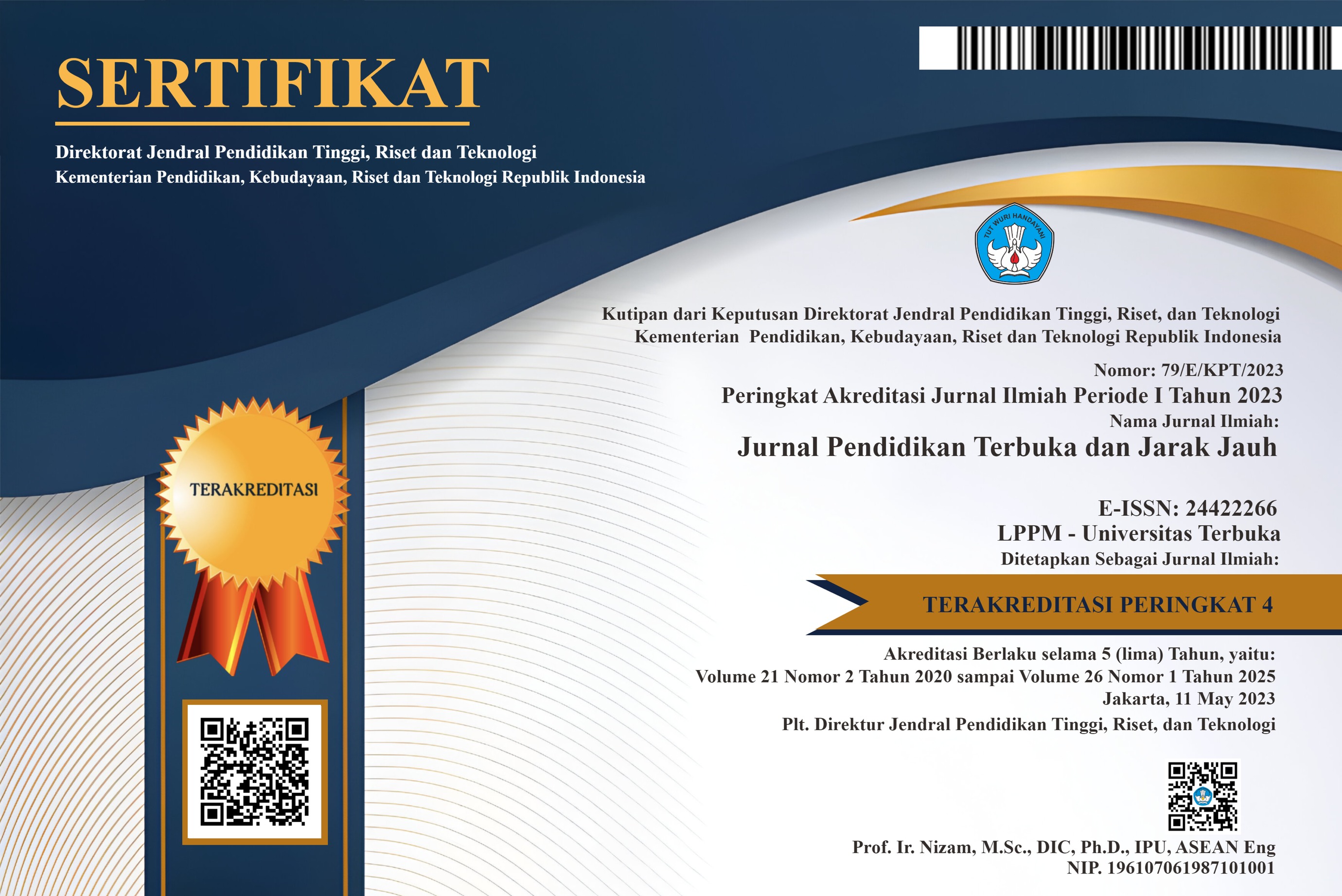MODEL PEMBIMBINGAN AKADEMIK ONLINE BAGI MAHASISWA FAKULTAS ILMU SOSIAL DAN ILMU POLITIK UNIVERSITAS TERBUKA
Keywords:
academic, counseling, distance education, onlineAbstract
Academic counseling in Higher Distance Education is one of the necessary instructional media between the faculty and the students as well as an important device for assisting students to cope and solve their problems. Up until now academic counseling has not been extensively used by lectures and students at the Universitas Terbuka because of a number of constraints such as unavailability of time, the disperse of student domicile and technological barriers. This study attempts to explore and examine the role of on-line academic counseling at Universitas Terbuka in particular at the Faculty of Social and Political Sciences (FISIP-UT). The finding shows that most students consider academic counseling as highly important to support student achievement. Accordingly online academic counseling needs to be more flexible and covers broader area. Online academic counseling needs a separate on-line forum aside the exciting forums such as online learning forum, smart teachers online, digital libraries, online bookstores, e-humanities, and learning object repositories. However, it is expected to be regularly scheduled and prompt response is imperative.
References
Hasanuddin. (2008). Analisis Nilai Matakuliah BING3317 Translation 1, disampaikan pada seminar intern FISIP-UT. Jakarta, 26 Januari 2008
Kember. (1995). Open learning courses for adults: A model of student progress. Englewood Clift. New Jersey: Educational Technology Publications.
King, V. (2004). Technology facilitated online and distance learning student support. ICALT, 801-803, Fourth IEEE International Conference on Advanced Learning Technologies (ICALT'04).
Panda. et al. (2004). Study on programme completion and learner persistence and drop out in distance education. Report of Collaborative Research Study of IRFOL, Cambridge and IGNOU, New Delhi.
Rumble, G. (2000). Student support in distance education in the 21st century: Learning from service management. Distance Education, 21(2), 216-235.
Simpson, (2004). The impact on retention of interventions to support distance learning students. Open Learning, 19(1), 79-95.
Tinto, V. (1993). Leaving college: Rethinking the causes and cures of student attrition (2nd ed). Chicago: University of Chicago Press.
Oetojo, B. & Daulay, P. (2007). Pola interaksi sosial mahasiswa dalam forum komunitas FISIP Universitas Terbuka. Laporan Penelitian, tidak dipublikasikan.
Windrati, N. K. (2004). Efektivitas komunikasi interaktif terhadap ketahanan belajar mahasiswa perguruan tinggi jarak jauh. Tesis, tidak dipublikasikan.





